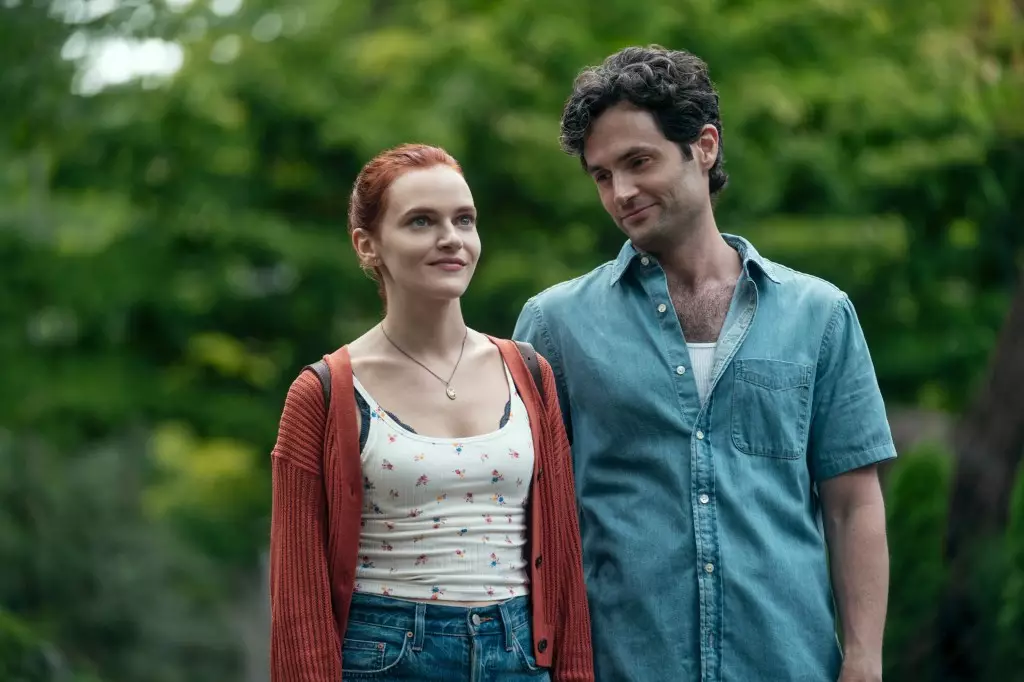In the riveting conclusion of the Netflix thriller series *You*, viewers are met with an unexpected but fitting end for the complex character of Joe Goldberg, portrayed masterfully by Penn Badgley. As one of the most memorable antiheroes of recent television history, Joe’s tale is one steeped in manipulation, deception, and a deceptive charm that often masks his sinister tendencies. The show’s creators, Michael Foley and Justin Lo, along with Badgley himself, understood from the inception of the series that Joe’s arc could not culminate in a simple resolution. Their choice to allow Joe to face the consequences of his actions, rather than granting him an easy escape, underscores a broader commentary on the nature of justice and accountability.
Setting Joe Goldberg in a prison cell, stripped of freedom and control, was a powerful narrative decision that resonated deeply with the audience. This ending, different from the early iterations involving supernatural elements like Joe becoming a ghost, emphasizes the importance of accountability in a world that often turns a blind eye to the atrocities committed by individuals who cocoon themselves in a facade of victimhood. By confronting him with the repercussions of his actions, the series reinforces the notion that evading justice is not a viable option, even for a character as compelling as Joe.
The Burden of Redemption
Throughout the narrative, viewers witness a character who embodies the term ‘unrepentant’. Even as he languishes behind bars, Joe continues to harbor the delusion that he is a victim of circumstances rather than the architect of his destruction. This warped sense of self is further accentuated by the show’s iconic voiceovers, which serve as a window into his conflicted psyche. Foley describes the creative process behind Joe’s ultimate fate as a collaborative effort, emphasizing a shared understanding that Joe would not be redeemed. The choice to strip him of any semblance of a happy ending was a conscious one, as they aimed to portray the true consequences of Joe’s heinous actions.
The creators’ stance is pivotal in shaping how audiences perceive not just Joe, but the consequences of unchecked privilege and toxic masculinity. Rather than finding solace in a romanticized redemption arc, Joe ends up facing the shattered remains of the lives he has touched—and often ruined. This story decision acts as a lens through which viewers can assess the narrative of justice, questioning what it means to truly face the ramifications of one’s actions. Would Joe’s death have been a fitting conclusion? Certainly, it might have brought a sense of closure for his victims, but it would undermine the essential theme of facing oneself, which Foley and Lo sought to emphasize.
Voicing Justice through Complexity
Badgley’s contribution to the series finale also sparks a rich discourse regarding the portrayal of justice, especially concerning the characters who play roles in Joe’s demise. When reflecting upon the closing scenes, he eloquently offers insights into the moral dilemmas tied to rendering judgment on characters like Joe. A woman taking Joe’s life, he argues, would only serve to burden her with the psychological trauma of murder. Likewise, mere imprisonment feels lacking in poetic justice for a character who has committed so many heinous acts.
This thoughtful analysis introduces a deeper layer to the audience’s understanding of morality. There lies an intrinsic complexity in deciding what constitutes true justice. Badgley’s reflections hint at a societal problem, where the cycle of abuse and violence perpetuates itself, and raising these issues transforms the narrative from superficial entertainment to something far more profound—an exploration of conscience versus consequence.
In the end, Joe Goldberg remains emblematic of a flawed human condition, illustrating our intrinsic struggle to balance empathy with the demand for justice. The choice by the creators to anchor Joe’s fate in the reality of consequence challenges viewers to introspectively consider the moral fabric of society. The series has closed its curtain, but the dialogue it inspires concerning accountability, redemption, and the complexities of human behavior will linger well beyond the final credits.
